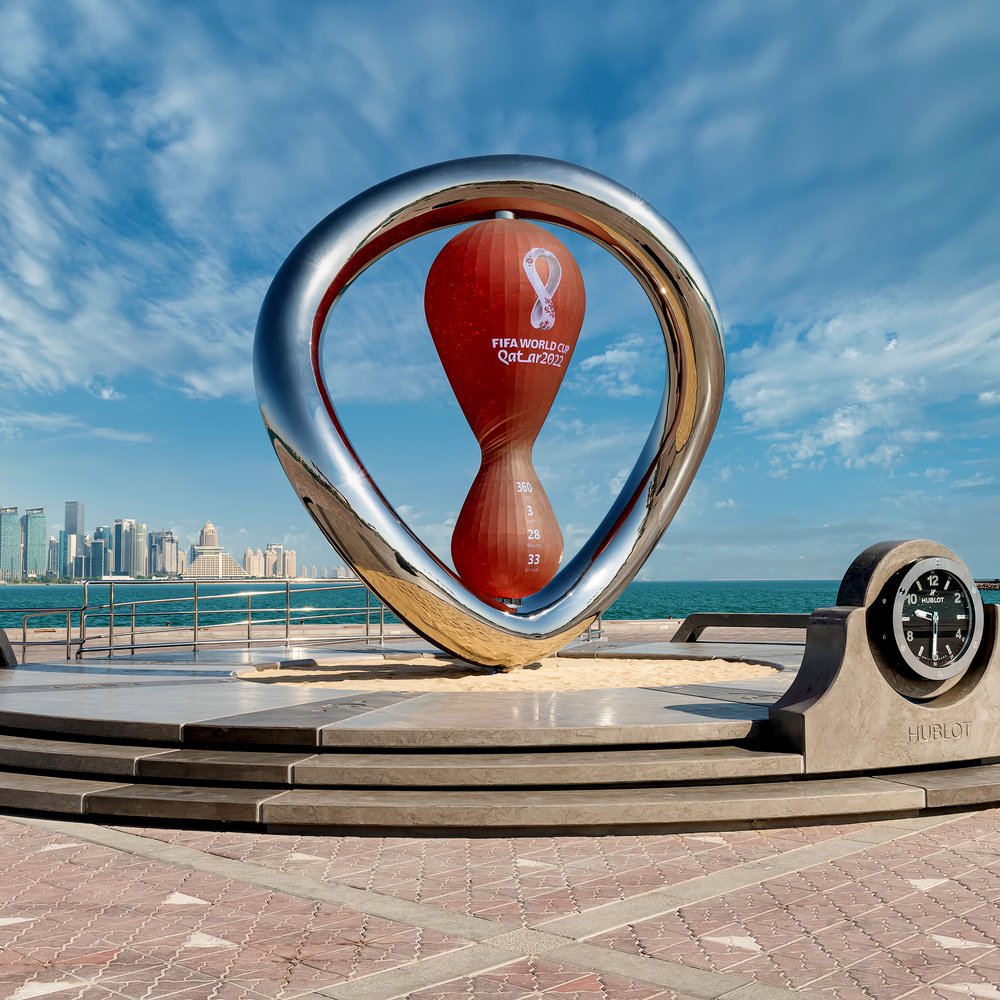UK: Concerns over Qatar's human rights record should halt UK-Gulf trade talks, say CSOs

Shutterstock (purchased)
Dear Secretary of State
As the 2022 FIFA World Cup gets underway the shocking human rights situation in Qatar has come into sharp focus. Sepp Blatter, President of FIFA at the time Qatar was awarded the tournament and himself currently suspended over allegations of corruption, has now admitted it was wrong to make Qatar the host country. The UK must learn from this experience: ongoing negotiations for a Free Trade Agreement with the Gulf Cooperation Council are sending a clear signal that the UK gives little importance to human rights or climate change and must be halted.
Abuse of migrant workers remains widespread in Qatar despite reforms to the labour law, and there have been reports of high numbers of deaths of construction workers. Workers regularly report violations of conditions of employment such as wage theft and changes to contracts, payment of extortionate and illegal recruitment fees, health and safety violations, and restrictions to fundamental freedoms of expression and movement. Other countries in the GCC fare little better: all six countries are ranked on the Global Rights Index as either having no guarantee of labour rights or systematic violations of rights.
One World Cup Ambassador’s comments have clearly highlighted that the rights of the LGBT people are not protected in Qatar. The situation varies somewhat across the region, but same sex marriage is criminalised in all six member states and same sex relationships are illegal in all countries except Bahrain. LGBT people consistently face signifiant discrimination and disadvantage.
Women remain unequal in law in all six GCC countries. GCC states have among the highest gender wage gaps in the world. None of the countries’ legal systems specifically addresses marital rape and Bahrain and Kuwait explicitly exclude it from their definition of rape. Bahrain, the UAE, Kuwait and Oman continue to have gender-based nationality laws which leave women at increased risk of abuse.
Finally, GCC countries have a poor record on tackling climate change and environmental sustainability. Saudi Arabia and the UAE rank as ‘highly insufficient’ in their commitments, according to Climate Action Tracker. The other countries aren’t measured by the tracker but rely heavily on fossil fuels for their domestic energy as well as government revenues. Concerns have also been raised regarding low animal welfare standards in the region.
The agreement itself is estimated by your department to bring an increase of only 0.06% to 0.11% in UK GDP by 2035 and to increase UK emissions disproportionately, by between 0.12% and 0.23%. Given the limited economic benefits of this agreement, the symbolism of agreeing a deal with countries with such poor records on human rights and the climate is particularly important. As there is no published strategy for UK trade or proposals for robust mechanisms for monitoring, there is a significant risk that a deal would further entrench the issues we have highlighted.
We are writing to urge you, as both Secretary of State for International Trade and Minister for Women and Equalities, to change track, halt negotiations on a trade deal and focus on working with GCC countries to ensure significant improvements in the protection of human rights, the achievement of climate and environmental goals, including significant improvements in animal welfare standards.
Yours sincerely
Ruth Bergan, Director, Trade Justice Movement; Peter Stevenson OBE, Chief Policy Advisor, Compassion in World Farming; Patti Rundall, OBE, Policy Director, Baby Milk Action; Alexander Carnwath, Head of Policy, Transform Trade; Asad Rehman, Executive Director, War on Want; Michael Clements, Director of International Programmes, Business & Human Rights Resource Centre; Nick Dearden, Director, Global Justice Now; Dominique Muller, Policy Director, Labour Behind the Label